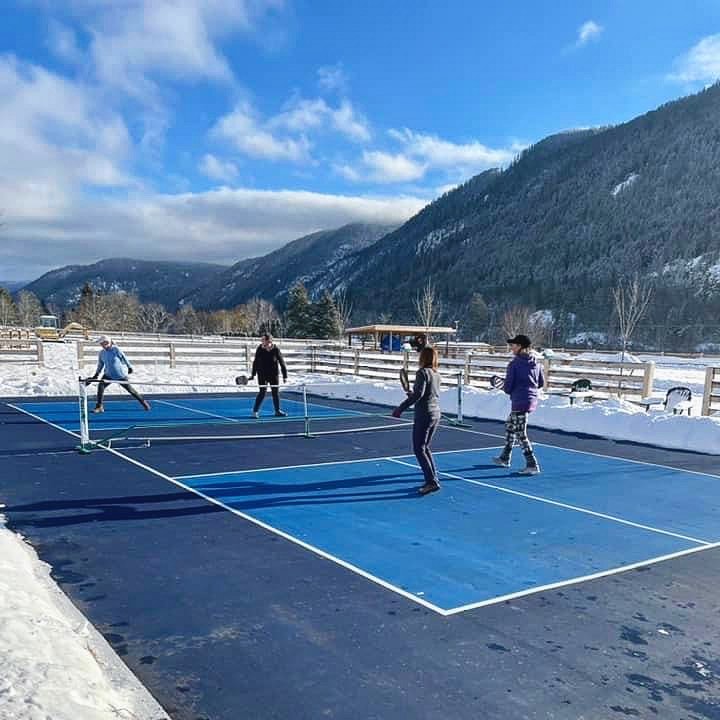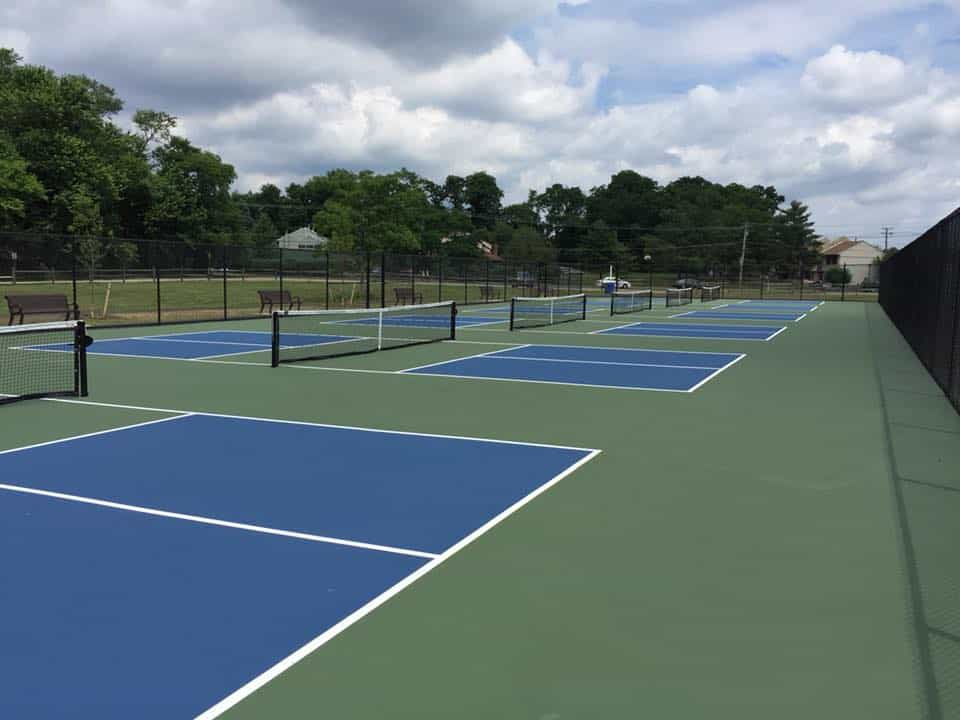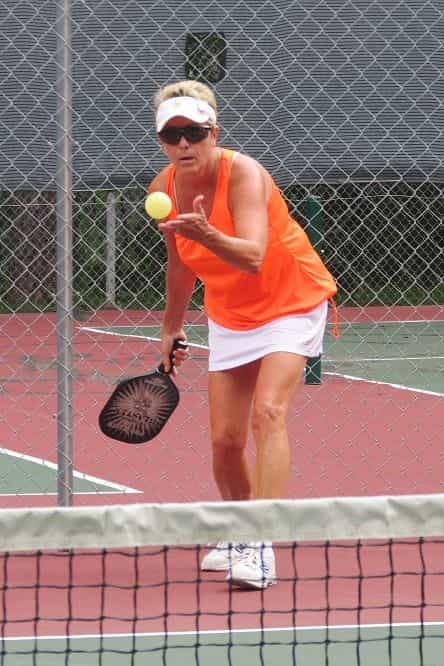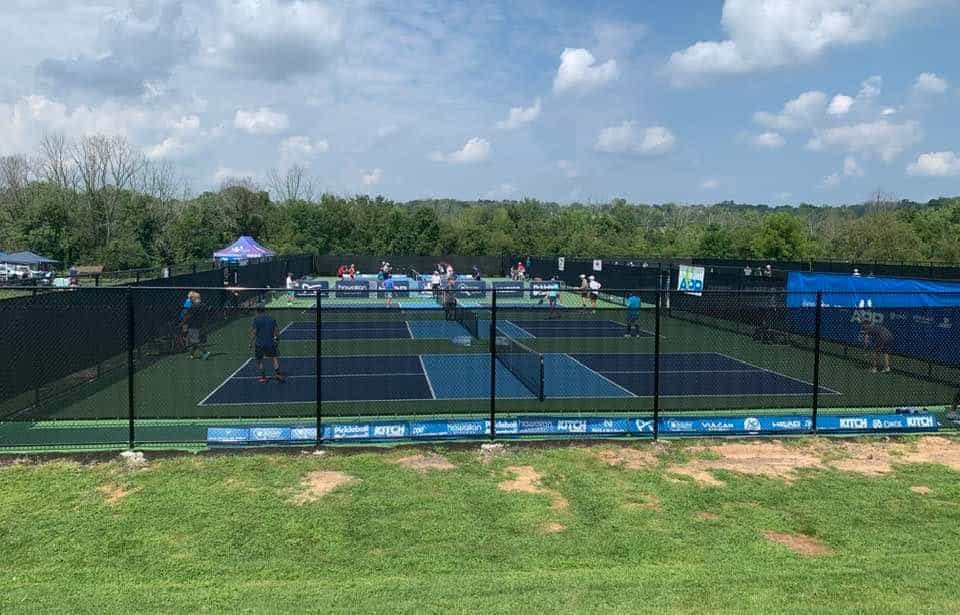Why Pickleball Ratings Matter
Pickleball ratings are a crucial component of the sport, used to assess a player’s skill level and pair them with opponents of similar abilities. They offer a way to measure progress and improvement over time, as well as provide an opportunity for players to compete in tournaments at their appropriate level. In addition, pickleball ratings serve as an important tool for building community within the sport.
Players can use their ratings to connect with others who share their skill level and form lasting friendships both on and off the court. Understanding how pickleball ratings work is essential for anyone looking to develop their game and become more involved in the sport.
The Pickleball Rating System Explained
The rating system used in pickleball is based on a scale from 1.0 to 5.0, with each level representing a different degree of skill and experience. A player’s rating is determined by evaluating their playing ability across several different criteria, including shot selection, consistency, strategy, and mobility on the court.
Players are rated on both singles and doubles play separately – which means that even if you have a high doubles rating, your singles rating may be lower if you don’t perform at the same level when playing alone. In order to achieve an accurate rating score players must participate in tournament games where they will be evaluated by certified raters who are trained to use the evaluation guidelines provided by USA Pickleball Association (USAPA).
Understanding the Rating Sysetm
The significance of understanding how pickleball ratings work cannot be understated; it provides players with insights into areas they need improvement in order to advance up the ranking ladder. Not only does knowing your own rating help in finding other similarly skilled players for friendly matches but it helps match organizers create more balanced teams for tournament play. In short, pickleball ratings are a fundamental component of the sport, providing players with a way to assess their abilities, compete at their appropriate level, and build community within the sport.
The Rating System
Pickleball ratings are a way to measure a player’s skill level in the sport, and they play an important role in determining which tournaments players can enter and who they can compete against. The rating system used in pickleball ranges from 1.0 to 5.0, with 1.0 being a beginner level and 5.0 being the highest skill level attainable.
Levels of the Pickleball Rating System
Each level of the rating system represents a range of skills and abilities that a player possesses. A player rated at the 1.0 level is just starting to learn the basics of pickleball, while a player at the 5.0 level has mastered all aspects of the game and competes at an elite level. Here’s a breakdown of what each rating level represents:
1.0: This is typically reserved for someone who has never played pickleball before or is just starting out.
2.0: A player at this level has some court experience but may not be comfortable with all aspects of the game yet.
3.0: At this level, players have developed their skills enough to rally consistently but may still struggle with more advanced shots and strategies.
4.0: Players at this level have refined their skills and can execute advanced shots, use strategy effectively, and move fluently on the court.
5.0: This is reserved for elite players who have mastered all aspects of pickleball and can compete with the best in high-level tournaments.
Ratings Factors
So, how are players rated in pickleball? There are several factors that come into play when determining a player’s rating, including skill level, consistency, and strategy. Skill level is the most obvious factor, and it includes things like shot selection, shot execution, and court positioning.
A player who consistently executes advanced shots and has solid court awareness will generally be rated higher than someone who struggles with these aspects of the game. Consistency is also important when it comes to ratings.
A player who can consistently execute shots and avoid unforced errors will generally be rated higher than someone who makes frequent mistakes. Strategy plays a role in determining ratings because players who can effectively read their opponents and adjust their gameplay will generally perform better on the court.
How Pickleball Ratings Affect Play
The Impact on Gameplay
Pickleball ratings have a significant impact on gameplay. In most cases, players are matched up against others with similar ratings to ensure that the game is competitive and fair.
This means that players will often play against others who have similar skill levels and experience, which can make for exciting and challenging games. In addition, ratings determine which tournaments players can enter.
Tournaments are often divided into different skill levels, with players competing against others at their level. This allows players to compete against others who have similar abilities and experience, which makes for more exciting matches.
Rating Changes Over Time Based on Performance
Players’ ratings can change over time based on their performance in games and tournaments. If a player consistently performs well against opponents with higher ratings, their own rating will increase accordingly. Conversely, if a player consistently performs poorly against opponents with lower ratings, their rating may decrease.
This system ensures that players are always being matched up against those of similar ability levels. It also provides an incentive for players to continue improving so they can move up the ranks and compete at higher levels.
Overall, pickleball ratings play a crucial role in the sport of pickleball by providing an objective measure of each player’s skills and abilities. This helps ensure that games are competitive and fair while also providing a clear path for improvement over time.
Common Misconceptions About Pickleball Ratings
The High Rating Fallacy
One of the most common misconceptions about pickleball ratings is that a high rating automatically means a player is skilled. While it’s true that higher rated players are generally more skilled than lower rated players, there are many factors that can influence a player’s rating.
For example, a player who has played in more tournaments and won against higher rated opponents may have a higher rating even if their actual skill level is not as high as their rating suggests. Another factor that can inflate a player’s rating is consistency.
Players who are consistent in their performance, even if they don’t have exceptional skills, may receive a higher rating than someone who has more varied performance but ultimately has greater potential. It’s important for players to recognize that ratings are not the end-all be-all of skill level and to focus on improving their own game rather than solely relying on their rating to determine their worth as a player.
The Low Rating Misunderstanding: Everyone Has Something to Contribute
On the other hand, some players believe that a low rating means they are not worth playing with or don’t have anything to contribute to the sport. This is simply not true – every player has something to offer and can contribute positively to the pickleball community. Lower rated players may have less experience or less refined skills, but they still bring enthusiasm, passion, and dedication to the sport.
Furthermore, playing with lower rated players can actually be beneficial for higher rated players by providing new challenges and opportunities for growth. Players should never discount someone simply because of their rating – instead they should approach every match with an open mind and willingness to learn from all opponents regardless of their perceived skill level.
The Stagnant Rating Myth
Another common misconception about pickleball ratings is that they are stagnant and unchangeable. While it’s true that ratings are based on a player’s past performance, they can change over time based on a player’s current performance. Players who improve their skills, consistency, and strategy can see their rating increase, while players who struggle or don’t play as frequently may see their rating decrease.
It’s important for players to recognize that ratings should never be seen as a final judgment or permanent label – there is always room for improvement and growth in the sport. By focusing on their own progress and working to improve their game, players can continue to challenge themselves and move up in the rating system over time.
Strategies For Improving Your Pickleball Rating
Practice Makes Perfect
One of the best ways to improve your pickleball rating is to practice specific skills. This means identifying areas where you might be weaker or less consistent, and dedicating time during your practice sessions to improve those skills.
For example, if you struggle with your serve, spend extra time practicing different types of serves until you feel more comfortable and confident. Another key aspect of practicing is consistency.
Pick a specific time each week for practice and make sure to stick to it. Consistency in your practice routine will help build muscle memory and improve overall skill level.
Play With More Experienced Players
Playing with more experienced players is another effective way to improve your rating. By playing against people who are better than you, you will be challenged to step up your game and learn new strategies that can help elevate your play.
Don’t be afraid to ask more experienced players for tips or advice on improving specific aspects of your game. Many players are happy to share their knowledge and offer insights that can help you take your game to the next level.
Seek Out Coaching or Lessons
Working with a coach or taking lessons from a qualified instructor can also be highly beneficial when it comes to improving your pickleball rating. A coach can help assess areas where you need improvement and provide personalized instruction tailored specifically for you.
During lessons, instructors can also offer feedback on technique, strategy, and other factors that may impact gameplay. With regular coaching or lessons, players can see significant improvements in their skill level and overall rating over time.
Overall, there are many ways players can work towards improving their pickleball rating. Whether through targeted practice sessions, playing with more experienced competitors, seeking out coaching or lessons – anyone who is committed enough has the potential to become a stronger player over time.
Conclusion
Recap
Throughout this article, we’ve discussed the importance of pickleball ratings in the sport. The rating system is used to determine a player’s skill level and to ensure fair competition by matching players of similar ability. We’ve also explored how ratings can change over time based on performance and highlighted common misconceptions about the rating system.
It’s important to remember that pickleball ratings aren’t just a number – they represent a player’s abilities, consistency, and strategy on the court. As players work to improve their game and increase their rating, it’s crucial to focus on developing these key areas.
Strive For Improvement in Your Game and Your Pickleball Rating
Whether you’re just starting out or have been playing for years, there is always room for improvement in your game and your rating. By practicing specific skills, playing with more experienced players, and seeking out coaching or lessons, you can work towards achieving your goals. Although it can be frustrating at times when our rating doesn’t reflect our perceived skill level or when we experience setbacks on the court, it’s important to stay positive and keep working towards improvement.
Remember that everyone starts somewhere – even top-rated players had to work hard to get there. We hope that this article has provided helpful information about pickleball ratings and inspired you to continue striving towards improvement both on and off the court.





